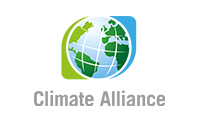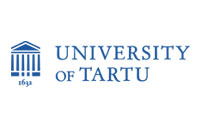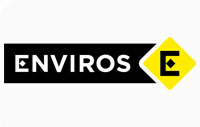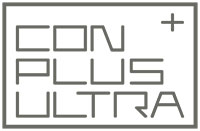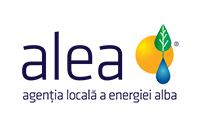Enhancing policy perspectives and financing mechanisms for municipalities towards green and energy transition | Workshop

Responsible Team and roles
- Climate Alliance: Andrea Carosi, Miguel Morcillo
- Coordinator and facilitator
- UTARTU: Elis Vollmer, Hector Pagan
- Policy expert – Speaker
- ALEA: Florin Andronescu, Laurentiu Mihet
- EUCF National Hub & Country Experts – Speaker
- Sharing inputs and experiences on regional funding for SECAP implementation
- CPU: Harald Grill
- Governance for climate neutral cities (Legal competencies, needs and Barriers, cooperation needs between different governance layers)
- EUCF: Dora Biondani
- EUCF coordination – Facilitator
Why this workshop?
In recent years, severe droughts have hit much of Europe, including CEE countries. Last year, in Hungary, lakes and rivers disappeared, as 90 percent of the country suffered from the drought. In Poland, the lack of rain had a devastating impact on agriculture, with the sector losing some 1.35 billion euros due to lower yields. In Romania, there was a seven-fold increase in wildfires. The energy crisis is touching more and more local authorities and communities.
Despite these damaging and critical effects, national policies in Central and Eastern European countries do not reflect the climate and energy emergency we are experiencing. Governments have been dragging their feet on meeting climate and energy targets and implementing green and climate-neutral policy goals within the European community. Furthermore, the multi-level governance process between the sub-national levels is still lagging behind, and access to financing is key for transforming ambitious Sustainable Energy and Climate Action Plans into projects.
During this workshop, city and energy agency experts will share their insights and experiences in policies and financing models used by frontrunner municipalities to successfully implement climate and energy related strategies and action plans (e.g. SECAP).
Objectives of the workshop
- Creating inspiration by sharing good practices on financing models for implementing green and energy measures at the local level in CEE countries
- Discussing main CEE countries pitfalls for SECAP implementation and elaborating recommendations on how to better support CEE municipalities
- Practical key-measures/approaches to overcome hampering factors to shape and implement green and energy policies in CEE municipalities
Agenda
00′
Welcome and introduction – Andrea welcomes participants and introduces speakers and rapporteurs
15′
Interventions – Two speakers get max. 7′ each to present their main points on the topics (sharing slides)
- Speaker 1 CA (Andrea Carosi) – Overview of CEESEU findings on gaps and barriers to implement climate and energy policies in CEE countries
- Speaker 2 EUCF (Dora Biondani) – Key components to implement a successful investment plan for energy and climate projects
30′
Focus discussions in parallel – Participants form 2 groups and discuss the thematic topic they will address. Invite the groups to note down key insights/challenges/recommendations to be shared with the big group (one flipchart each)
Group 1 Policy
Recommendations to further improve cooperation between national, regional and local governments for successful policy making in CEE countries.
- Participants: UT, CPU, ALEA, Climate Alliance
- Facilitator: CA (Andrea Carosi)
- Participants: UT, CPU, ALEA, Climate Alliance
Group 2 Financing
How to link national/regional funding programme and policies or private funding sources (e.g. investment bank, crowdfunding) with SECAP implementation (or general climate&energy planning)
- Facilitator: EUCF (Dora Biondani)
- Participants: MAE, TREA, ENVIROS
10′ Quick feedback from groups’ facilitators to share key insights.
20′ Open discussion led by Andrea on the key insights from the 2 groups
5′ Wrap-up – Concluding remarks by Andrea
Notes
The topics will be discussed building on (i) insights from CEESEU deliverables on CEE policies/pitfalls/recommendations (see table below), and (ii) lessons learnt by EUCF experiences.
The discussion will try to collect inputs, solutions, inspiring examples to be integrated in the final version of the deliverables above.
The workshop will explore different policies and financing models used by frontrunner municipalities to successful implement climate and energy related strategies and action plans (e.g. SECAP).
Detatils
Location: Magnet House, Bojtorján Room
Date/Time: 7th Sept. 09:00 – 10:30, limit 20 participants
Workshop duration: 90 min
Target audience: public authority representatives, energy agency experts, municipal utilities
Workshop facilitators
Andrea Carosi | Project Manager
Dora Biondani | Project Manager (EPAH, EUCF), Climate Alliance
Participants
CEESEU results – Main policy and financing challenges and solutions
| Policy challenges | Policy solutions |
| Lack of municipal human resources and experience | Enhancing cooperation and multi-level dialogues between EC and national governments |
| Lack of clear comprhenesion of the SECAP within the city council and technical offices | Improving multi-level dialogues between national and sub-national authorities and relevant stakeholders |
| Climate scepticism and scarce political commitment to further advance with SECAP (monitoring/reporting/implementation) | Enhancing transnational cooperation and international networking |
| Difficulties to actively engage local communities | Alignment between EU and national framework/tool |
| Lack of support from the national level | Improve the role of CoM national coordinators (e.g. development of national platform to collect, monitor and share energy data) |
| Lack of alignment between EU and national frameworks | |
| Financing challenges | Financing solutions |
| Lack of economic resources to implement measures | Promoting innovative financing mechanisms tailored to the regional context |
| Difficulties to access EU funding programmes | Providing dedicated financing schemes accessible only to local authorities already equipped with SECAP (or similar) |
| Uncertainty for future financing opportunities | Simplification of the overall application process for EU funding programmes |
| Difficulties to involve the private sector and investors (donors) in the implementation of SECAP measures | Increasing and improving capacity building activities for policy makers and technical officers on EU funding opportunities, in national language |
| Engagement and involvement of all relevant stakeholders | |
| Improving project bankability by bundling several small-scale projects |




